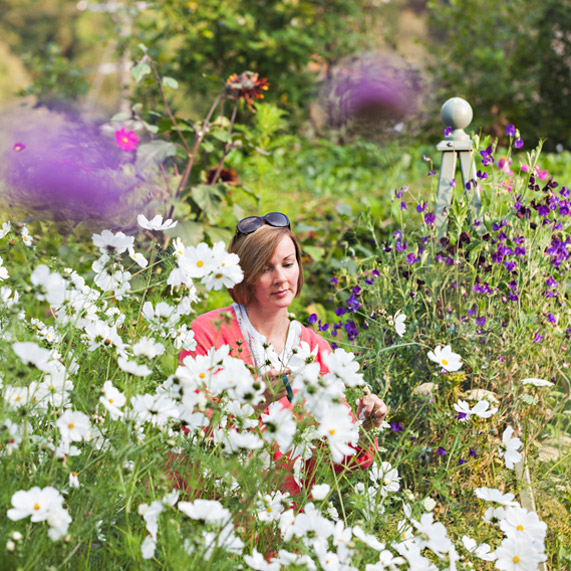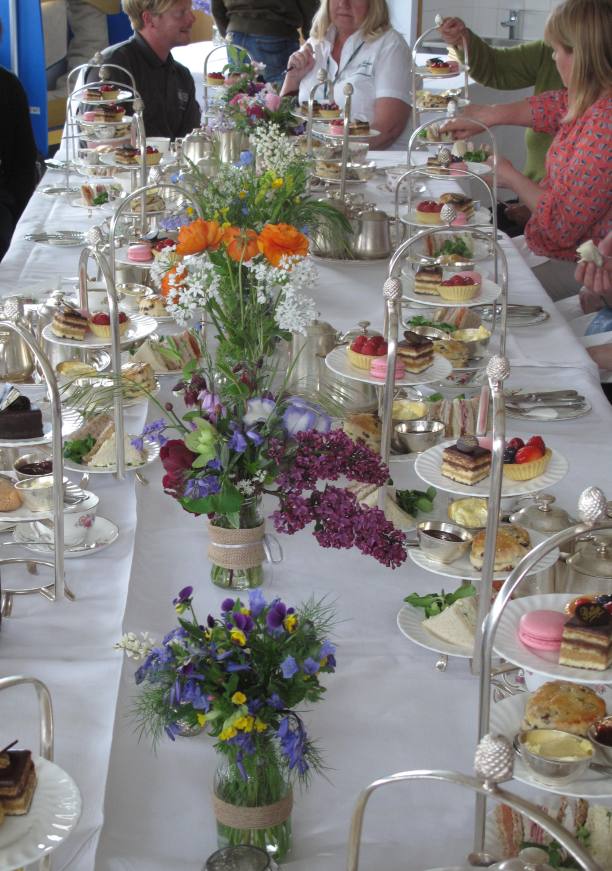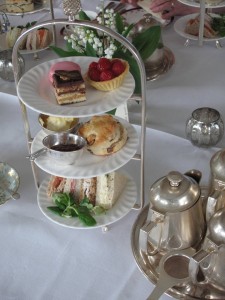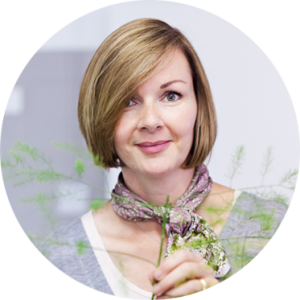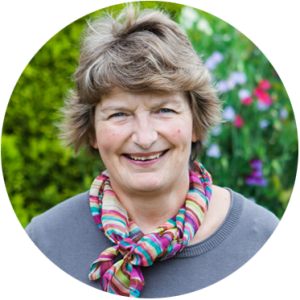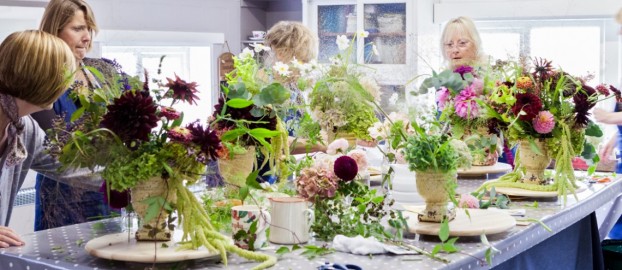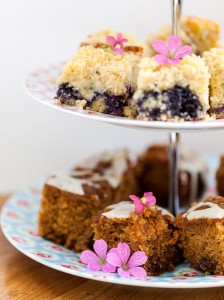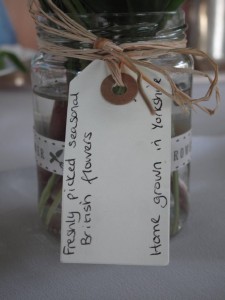Podcast: Play in new window | Download
Subscribe: Apple Podcasts | Podcast Index | RSS | More
Welcome to our second episode celebrating British Grown Flowers. It’s timely because this is British Flowers Week in the UK, where flower farmers, florists, retailers and wholesalers across the country join forces to raise awareness among consumers and the media about the renaissance of their domestic floral industry. Take note, because we’ve got big plans here at Slow Flowers to launch American Flowers Week very soon.
My guest today is more than just a professional contact. I’ve gotten to know her and spend time in her home and community and I’m so happy to call Sarah Statham a personal friend.
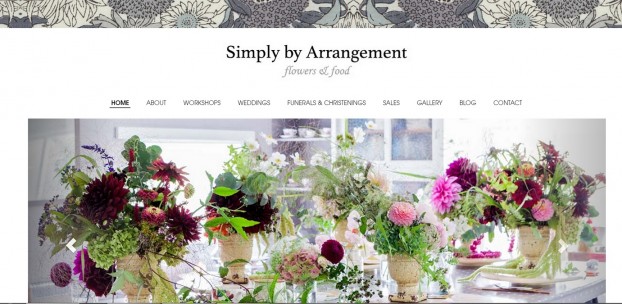
Here’s the web site for “Simply by Arrangement,” the flowers-and-food workshop business that Sarah and Christie launched after careers as criminal prosecutors.
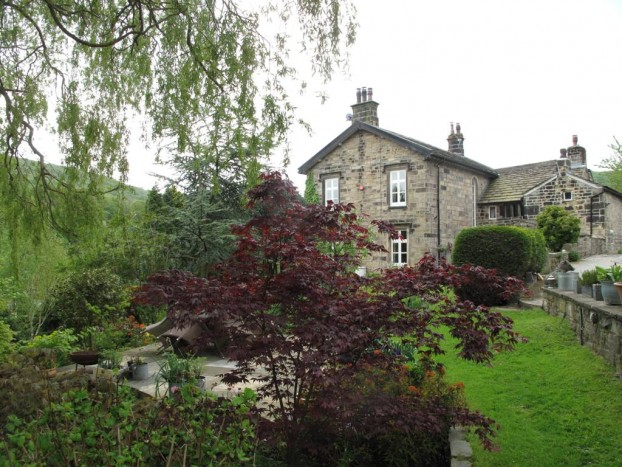
Hoo Hole House in Hebden Bridge, a centuries-old restored stone manor and HQ for Sarah’s flower-filled world.
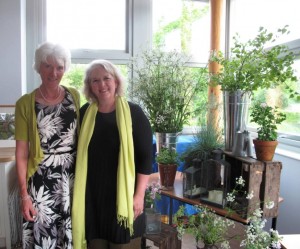
It was lovely to meet Gill Hodgson face-to-face after our long-distance friendship! She is as committed to putting British flowers on the map as I am about doing the same with American grown flowers.
Sarah and I were introduced virtually by British flower farmer Gill Hodgson of Flowers from the Farm, a UK-based organization of flower farmers and florists promoting British flowers. You may have listened to my podcast interview with Gill last year.
When I knew I would be traveling to England last month, I reached out to Gill and suggested that I schedule a visit to Yorkshire, where her farm is based.
As it turned out, Gill and Sarah teamed up to create an entire itinerary for me and my mother Anita, my traveling companion.
Sarah and her husband James Reader opened the doors to their home to invite us to stay for three amazing, flower-filled days.
Their generosity blew us away, and beyond that, Sarah made sure that we met many others in the local floral community.
A highlight was a gathering and full-on British afternoon tea at the RHS Harlow-Carr Botanical Garden in Harrowgate. Forty kindred spirits gathered to listen to my short presentation about Slow Flowers and the American Grown flower movement, but I have to say that what I learned from them in return was so valuable.
That afternoon we tagged along for one of the photo shoots of the Yorkshire community of growers and designers, all part of the PR campaign to coincide with British Flowers Week.
The Yorkshire flower farmers commissioned the very talented Sarah Mason whose images of Yorkshire-grown flowers, flower farmers and florists have been showcased on this blog all week.
On our last morning together, I turned on the recorder to interview Sarah about her own business, as well as about her British Flowers Week activities.
You’ll hear me refer to the fact that we are seated in a cottage in the Cotswolds and just to explain, Sarah and James brought my mom and me with them for the first day of their week-long vacation in a charming village called Snowshill. Yet another amazing bonus of this visit and of their hospitality.
The co-creator of Simply by Arrangement, which she started two years ago with Christie Buchanan, Sarah Statham is a floral designer and educator based in Hebden Bridge, in Yorkshire.
Christie calls herself a cook, but having eaten her delicious food, I’d say she’s a chef extraordinaire.
Their artisan flower and food business. pairs floral workshops with delicious food, which easily turns the educational aspect of a day playing with flowers into an entire luxury experience.
Simply by Arrangement also provide flowers and food for private clients as well as flowers for larger events and weddings.
Sarah grows many of our flowers used in her own beautiful cutting garden (which, by the way, the bedroom in which I slept conveniently overlooked).
Christie sources her menu ingredients locally from farms in Lancashire, where she is based.
I know you’ll enjoy my conversation with Sarah and please follow Simply by Arrangement at these social places.
Simply by Arrangement on Facebook
Simply by Arrangement on Twitter
Simply by Arrangement on Instagram
And if you find yourself in the UK, a Simply by Arrangement Workshop that feeds your creativity and tempts your palate is certainly in order.
Sarah and Christie would love to include you at the table.
After wrapping up our interview Sarah and I continued to chat about the similarities in our philosophies.
I asked her to write something for me to use at the close of this podcast relating to how she uses British flowers in her work, and here is an excerpt:
We would dearly love to use British flowers for all of our work. Sadly, maybe because British flower growers have yet to be able to match supply with demand there aren’t always the quantities available and also the British climate does mean that in winter months supplies of cut flowers are relatively limited as are the varieties available especially in our more Northern parts.
Our philosophy is this: locally grown flowers are our first choice always. We grow some unusual varieties ourselves but don’t yet grow as many as we need. We are lucky to have some amazing Yorkshire growers relatively nearby and they are the ones who we go to first.
Next will be a grower in Cheshire ( but that demands a 3 hour journey which is well worth it as her flowers are of such high quality ).
We also have a supplier in Cornwall called Flowers by Clowance, who is reliable and sends supplies by Fed Ex. During winter months we do have to obtain more flowers from the flower market although we still have some supplies from Cornwall. We look forward to the day when the British flower growing market is back to full strength and can meet our needs and hope that the ‘quiet revolution’ in British flowers will give the growers confidence to produce more quantities. Our workshops through spring and summer to around October are British flower based.
What I have tried to do at workshops is to show our attendees the real difference between locally grown flowers which haven’t been ‘traumatised’ by transportation from abroad and haven’t been grown in ‘battery farm like’ conditions and so I will have a small selection of non British flowers available for comparison. I can say without doubt that everyone always goes for the locally grown varieties. I think I mentioned the lady a couple of weeks ago who has vowed never to buy supermarket flowers again and who I have put in touch with a local grower in her area and who is already buying from her.
I have to be completely honest though, there are times when a bride might have her heart set on roses and they are not available here. Whilst I will always try and steer our brides towards seasonally grown ( and thus British) flowers, sometimes it just isn’t possible.
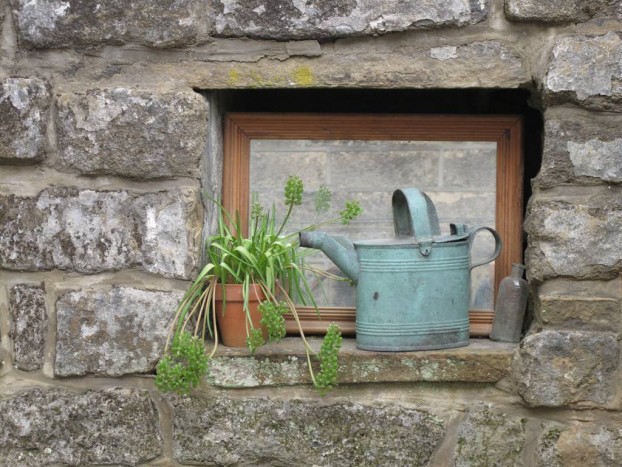
A quiet vignetter at Hoo Hole House caught my eye. Even the utilitarian is treated as a thing of beauty through Sarah’s eyes.
This description sounds so familiar to what I hear from florists and designers here in the U.S. I applaud transparency but I also want to respect that people have to make tough choices as small business owners.
At Slow Flowers I want to support anyone who engages with American grown flowers at any level, while also encouraging them to strive toward 100% American grown flowers as the ultimate goal. And I hope to be a resource to help equip those who make such choices.
Thanks again for joining me today for another wonderful conversation.
Yes, I am devoted to celebrating American flowers and the designers and farmers who are changing this entire industry for the better.
But as I said last week, I’m also thrilled to introduce you to ways we can borrow ideas and inspiration from places like the U.K., where many parallels occur between our two marketplaces.
Next week is our 100th podcast and you will hear from an established American flower farmer with a long history and deep Midwest roots, and where one doesn’t always expect to find year-round blooms.
Listeners like you have downloaded this podcast more than 52,000 times. THANK YOU to each and every one of you for downloading, listening, commenting and sharing. It means so much.
Until next week please join me in putting more American grown flowers on the table, one vase at a time. And If you like what you hear, please consider logging onto Itunes and posting a listener review.
The content and opinions expressed here are either mine alone or those of my guests alone, independent of any podcast sponsor or other person, company or organization.
The Slow Flowers Podcast is engineered and edited by Andrew Wheatley and Hannah Holtgeerts. Learn more about their work at shellandtree.com.
Additional music from:
audionautix.com









